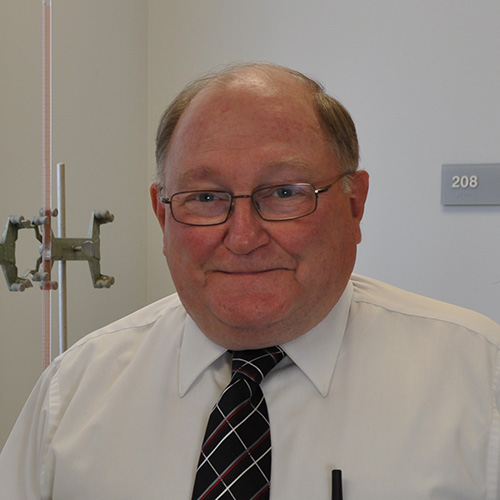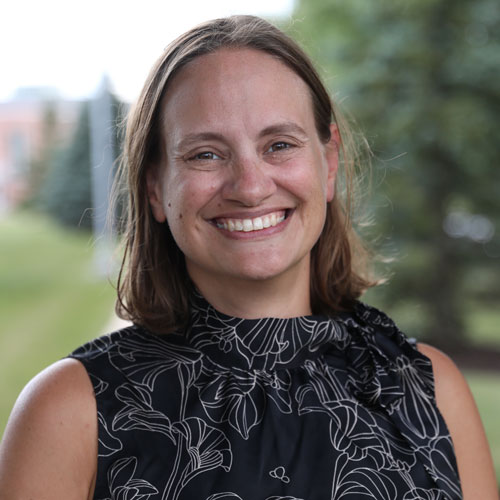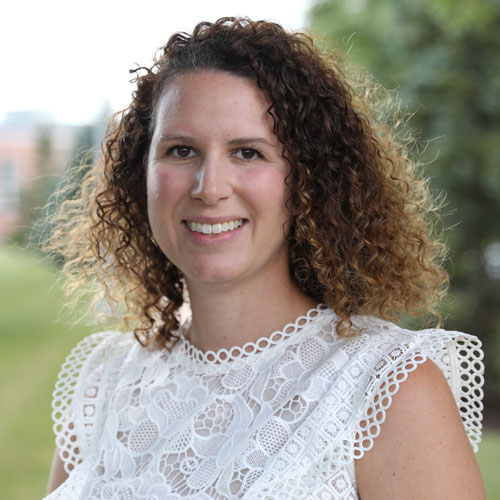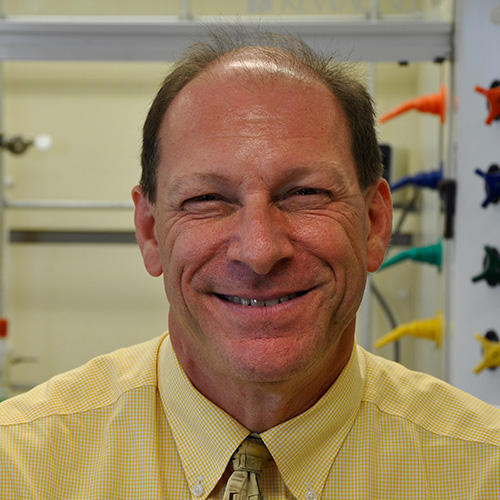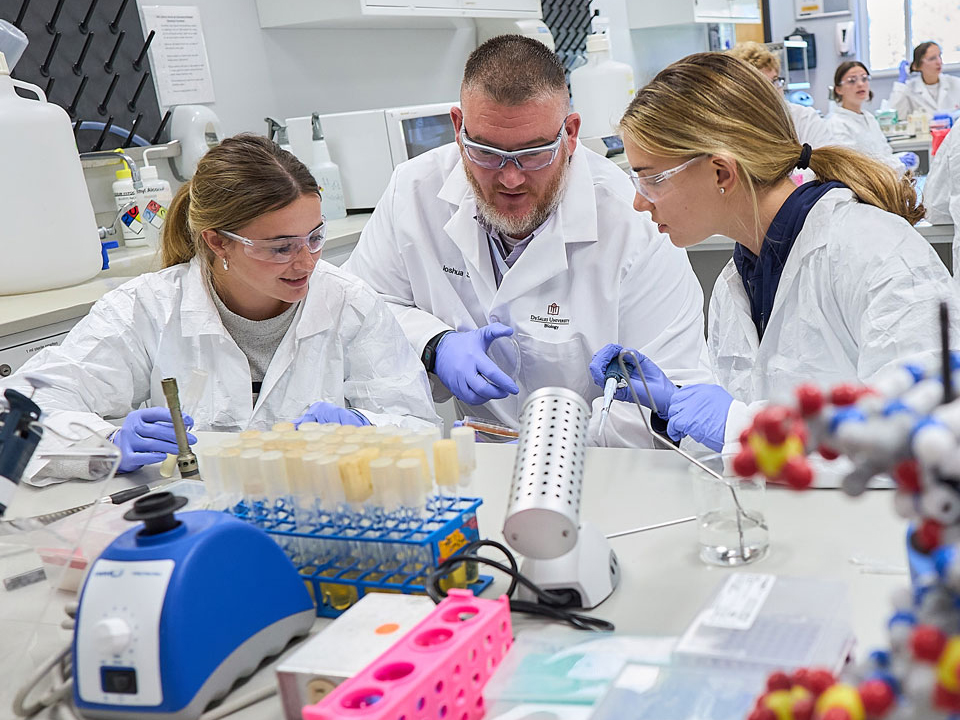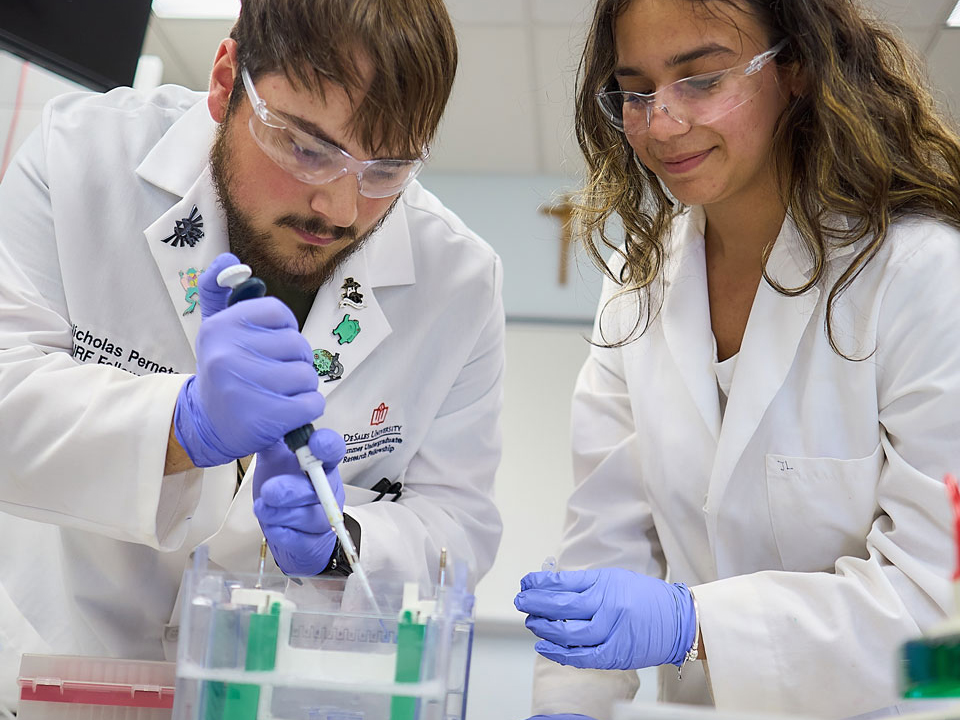College of Sciences
Bachelor of Science in Chemistry
Hands-on learning in the classroom and beyond to set you up for success in your field. That’s what you can expect as a chemistry major.
Program Details
- Official Degree Name
- Bachelor of Science
- Format
-
In Class-Day
- Credit Hours
- 132
- Program Start
- Fall Semester
- Application Deadline
- Apply Anytime
- Average Time to Degree
- 4 Years
Why Get Your Chemistry Degree at DeSales University?
You’ll do more than study inorganic, organic, analytical, physical, and biological chemistry. You’ll practice the skills you need to excel in your dream job.
As a chemistry major, you’ll use cutting-edge instruments in our Hurd Science Center and get opportunities to work and learn outside of the classroom (AKA resume builders). Think: Research projects guided by expert faculty. Internships. Honing your leadership skills in the Natural Science Club or Association for Women in Science. Volunteering to amaze local students with science through our Chemistry Demonstrations program.

Program Highlights
Professional Development Opportunities
- Build your career (and make memories along the way) by pursuing an internship or working on a research project. You can also stretch your skills by presenting at American Chemical Society National and Local Meetings, or studying food science abroad in another country. Take advantage of hands-on learning opportunities in one of our labs, each equipped with the same equipment you’ll use in your chemistry career.
Active Campus Culture
- You love being a chemistry major, but we want you to love the DeSales experience too. Join one of our 40+ clubs and organizations – including several science clubs. You can volunteer to tutor local children in science. Participate in popular annual traditions like the Chemistry Demonstrations program.
Personal Support
- Faculty within our College of Sciences are known for being more than experts – they’re really good teachers. They are approachable and want to help you succeed. Your chemistry professors will mentor you from day one and connect you with personal and professional opportunities for growth. Plus, small class sizes mean that you’re more than just a number – you’re a valued member of our community.
What Will You Study?
Chemistry students are required to participate in a faculty guided research project and/or in an internship at a local chemical or pharmaceutical company. This graduation requirement is typically fulfilled during the junior or senior year.
With a bachelor’s degree in chemistry, you will be ready for personal and career success. You’ll develop critical and analytical thinking abilities and become skilled at problem solving and communication. These are the primary goals of the chemistry program – to teach you these skills and more through a combination of dynamic classroom, lab, and professional experiences.
Required courses include:
- General Chemistry
- Inorganic and Material Chemistry
- Physical Chemistry
- Organic Chemistry
- Instrumental Analytical Chemistry
- Biochemistry
Meet the Faculty
Program Tracks & Options
Swipe below to discover more!
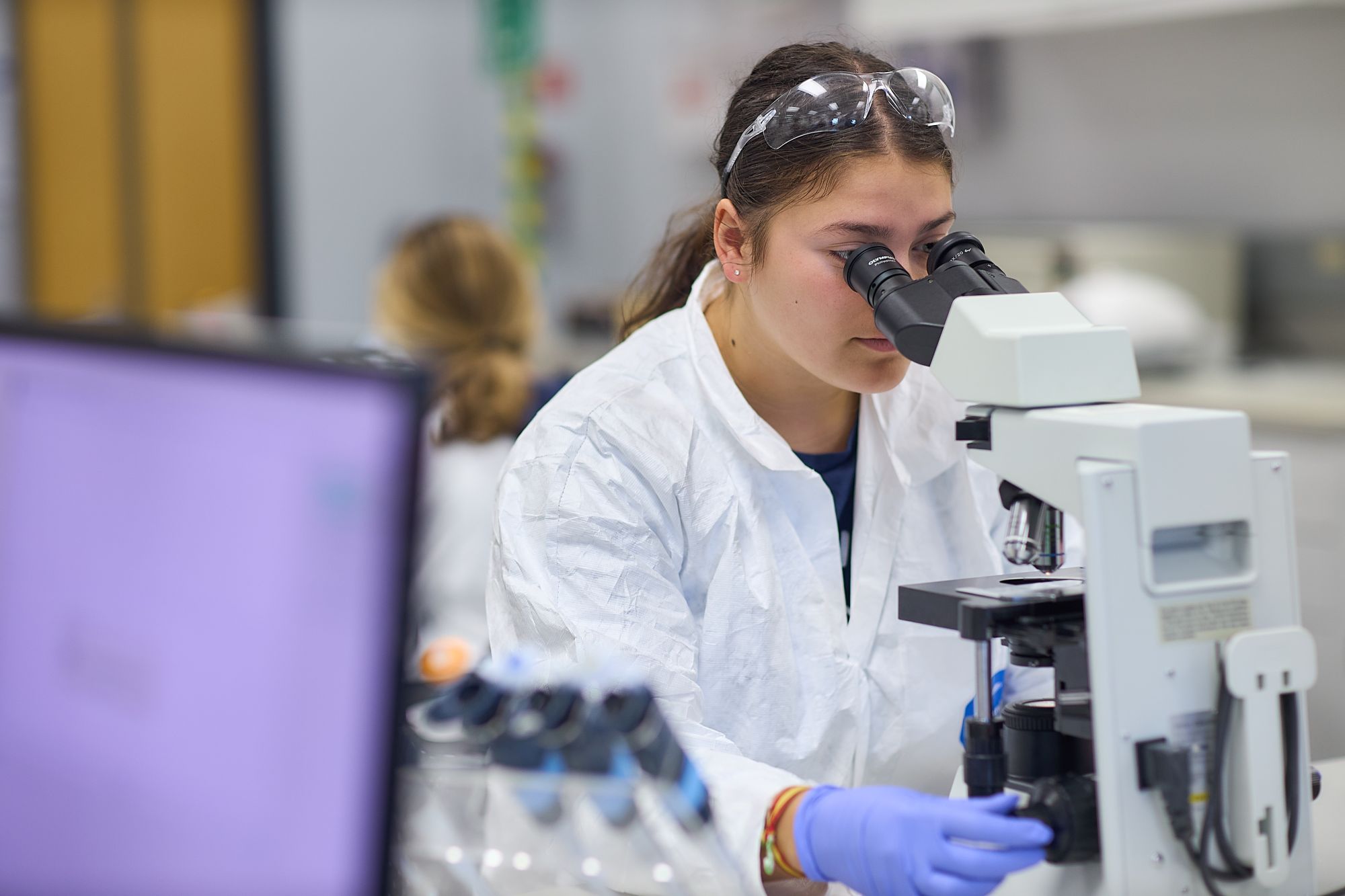
Forensics Science Track
Learn MoreTrack
Forensics Science
The forensic science track combines DeSales’ chemistry and criminal justice programs. With this combination of studies, you can pursue a career in forensic science, work in a lab or continue to graduate school.
Courses You May Take Include:
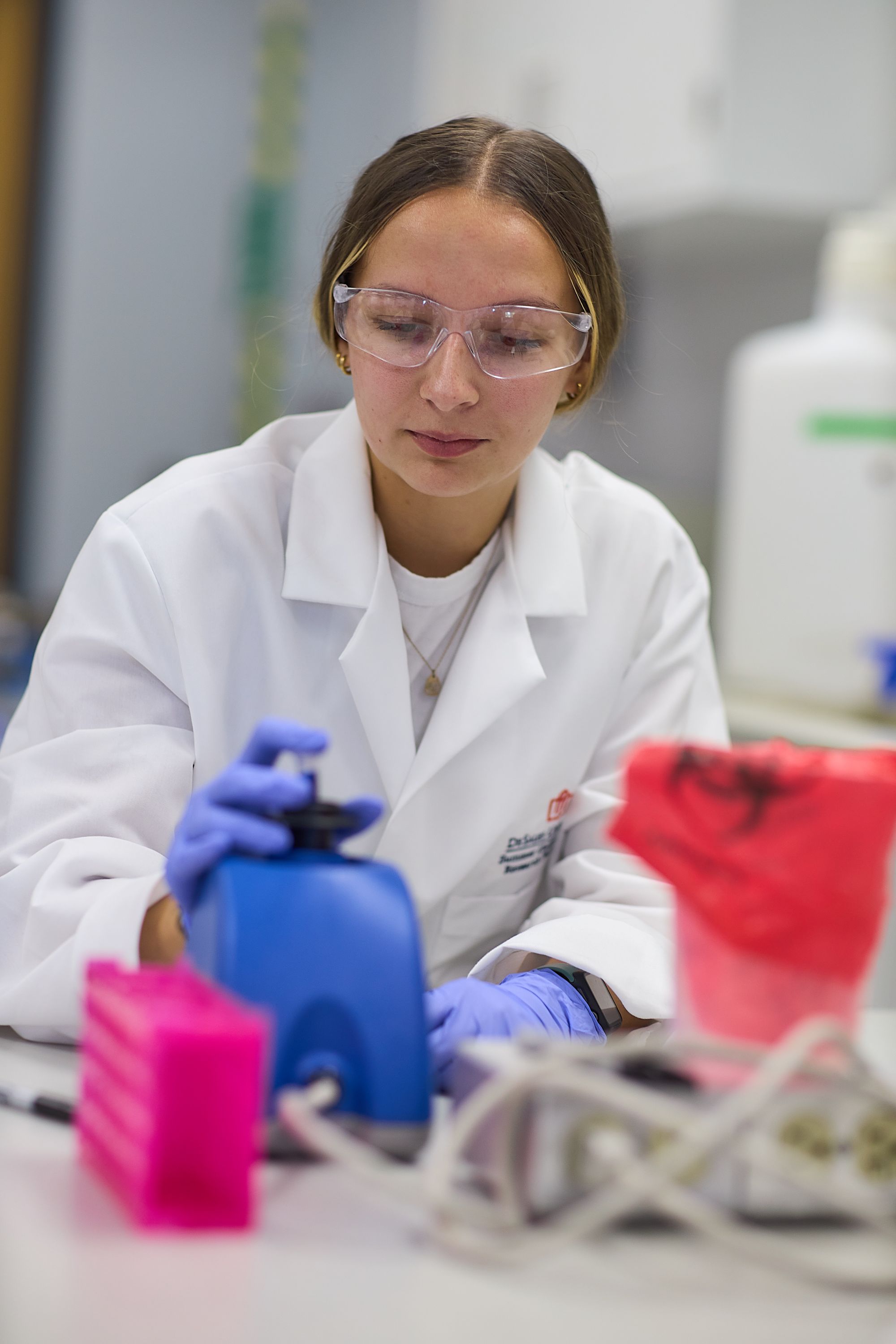

Chemistry Teacher Certification
Learn MoreCertification
Teacher Certification in Chemistry for Secondary Education
Prepare to guide students in grades 7-12 as a chemistry teacher. To earn this certificate, you should apply to the M.Ed. 4+1 program during your final year of undergraduate study.
Required Courses Include:

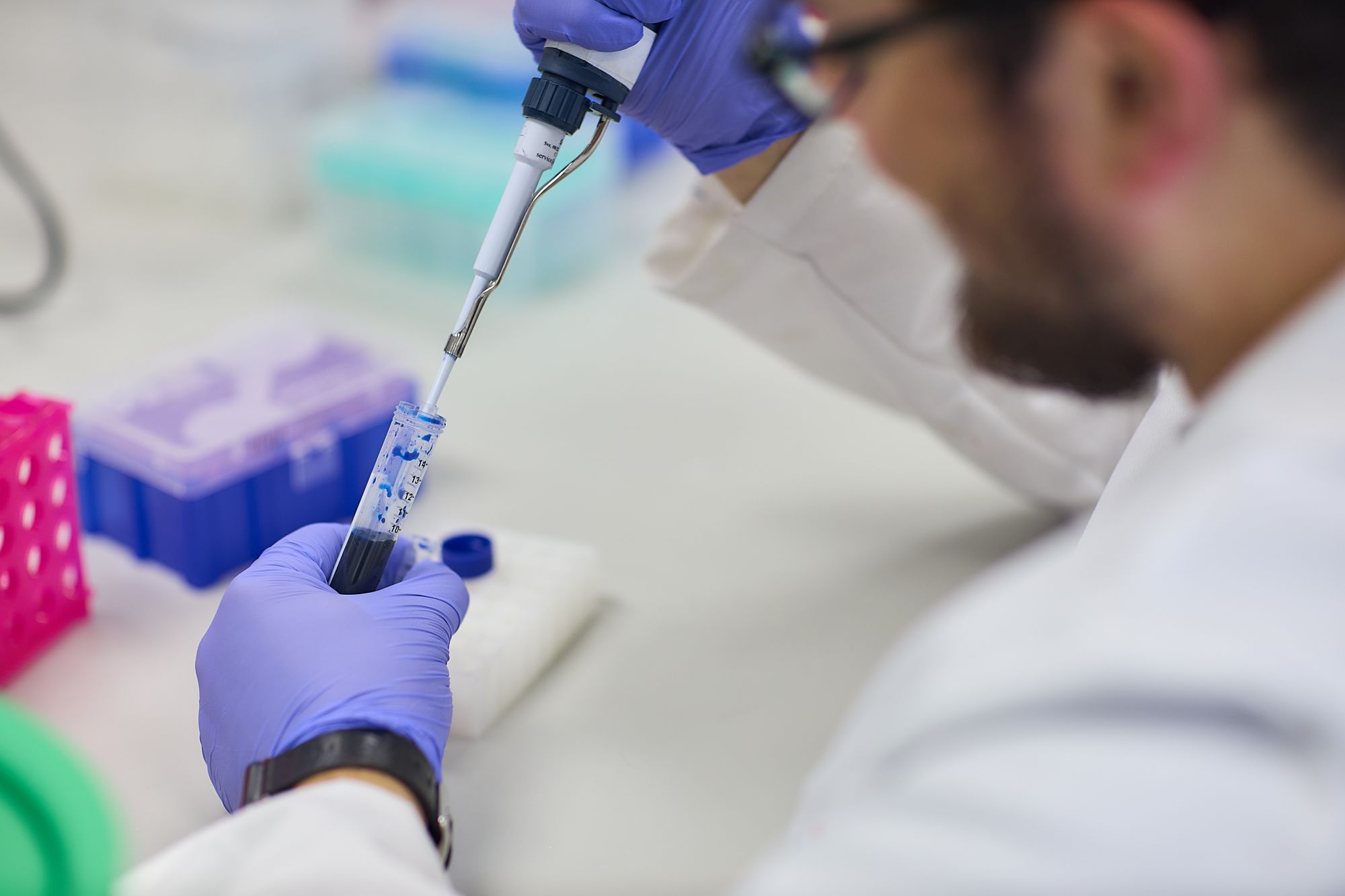
Chemistry Minor
Learn MoreMinor
Chemistry
Add a minor in chemistry to your studies by completing only six courses. This minor is not available to Biochemistry-Molecular Biology majors.
Courses You May Take Include:
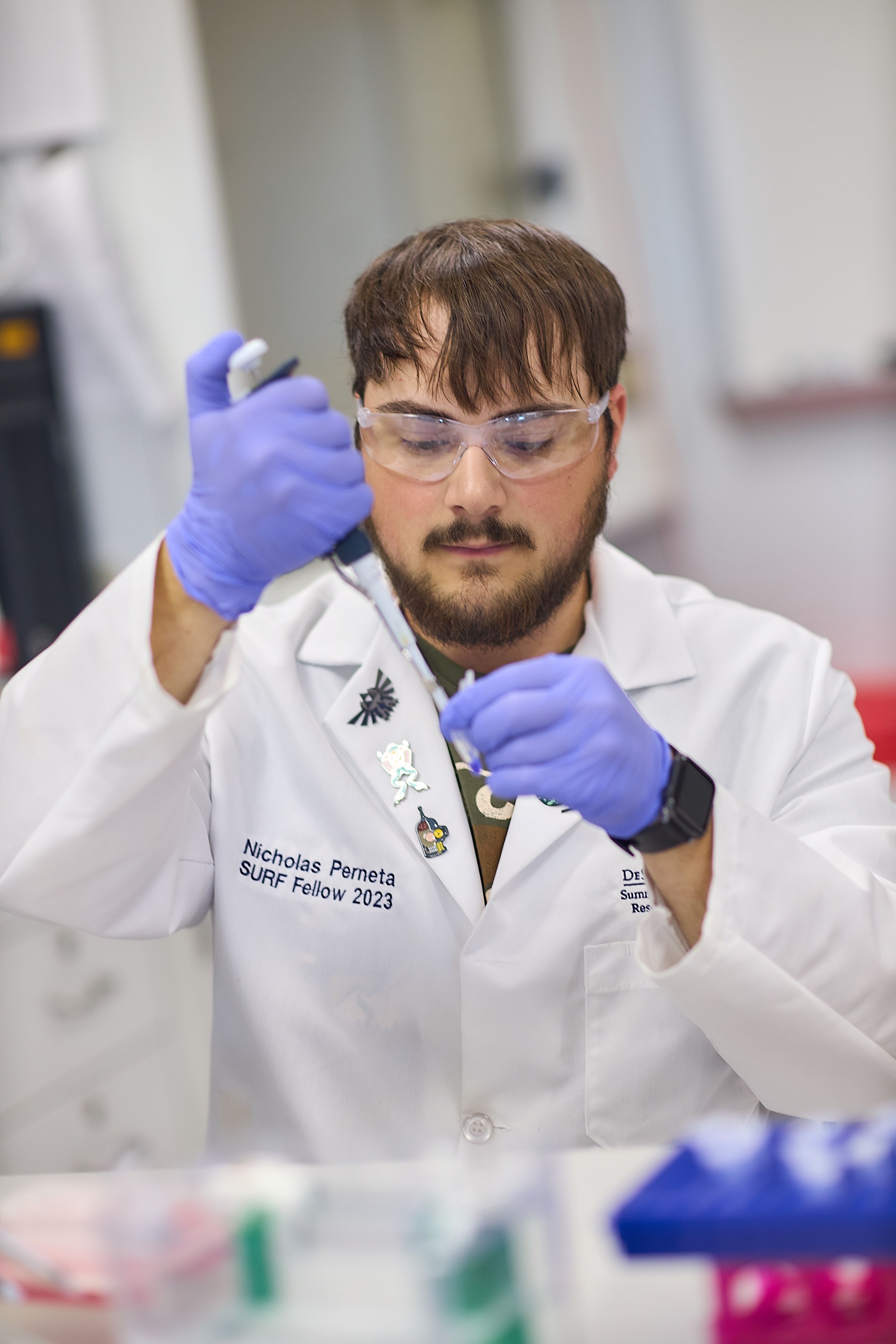
Outcomes & Careers
With a bachelor’s degree in chemistry, you’ll be prepared for many career paths. You can work in a number of industries, including chemical, pharmaceutical, food (including breweries and wineries), medical, instrumentation, insurance, government and more. Graduates have gone on to work for companies including:
- Air Products
- Johnson & Johnson
- Kraft Foods
- Just Born
- Hershey’s
- B. Braun
- Occupational Safety and Health Administration
- DuPont
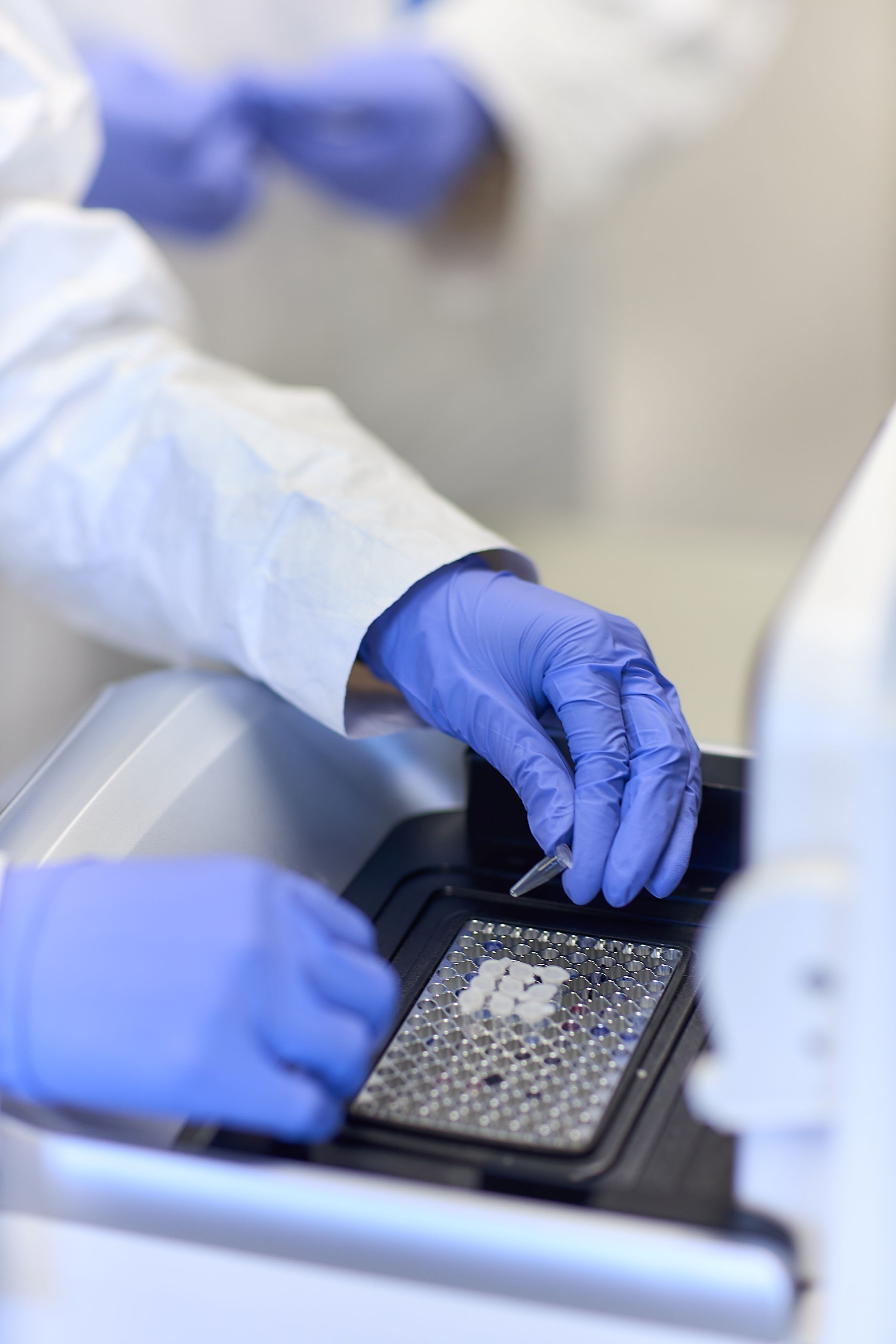
Application Checklist
- Application Fee: None
- Transcripts: Official High School Transcript
- Standardized Tests: Test-optional, however, an Admissions Interview may be requested.
- Recommendation: Completed Guidance Counselor Form and Teacher Recommendation Form.
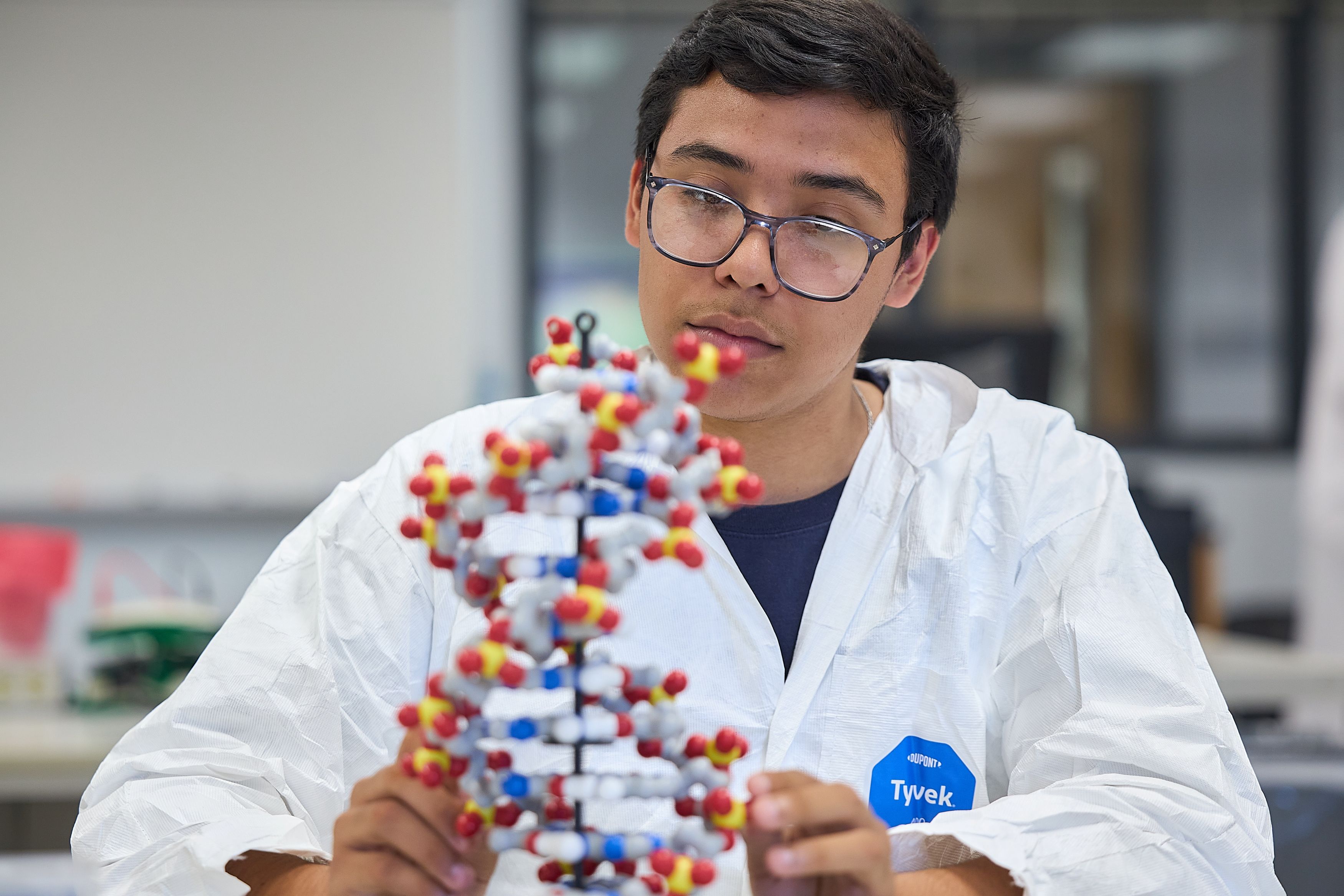
Program FAQs
We encourage you to apply early in your senior year of high school. DeSales uses a rolling admissions system, which means you will be notified promptly about your admissions status—usually within four weeks of our receipt of your completed application.
Priority deadline for scholarship consideration is December 1 of your senior year.
DeSales chemistry labs are designed so that you work with the same equipment you’ll use later in your career. You’ll get more hands-on learning opportunities than at most schools. All the chemistry lab equipment is exclusively for undergraduate use, so your independent research and coursework will never take a back seat to graduate students.
Our events calendar houses all our academic calendar. Simply use the Academic Calendar and Semester filters to see important upcoming dates.
Graduates with degrees in chemistry have found employment in a wide variety of industries including pharmaceuticals, quality control, and chemical laboratories.
Our students have also had a great deal of success in some of the leading graduate schools in the country earning master’s Degrees and Ph.Ds. as they continue their education.
Students interested in teaching can complete a 4+1 program to earn their degree and their education certification before heading out to work in high schools.
The Chemistry and Biochemistry department places a high priority on experiential learning experiences for our students, including undergraduate research for academic credit or internships.
Students can begin working in a research lab with a faculty mentor as soon as their second semester, though most wait until at least their sophomore year.
Our undergraduates performing research present their work at local, regional, and national academic conferences each year with support from the Rodger Berg Endowment for Undergraduate Education.
Additionally, researchers are likely to collaborate with their faculty mentor to publish their research.
Built into our curriculum is a block of credits set aside for students to explore other areas that may interest them, from biology to math to communications. It is pretty easy to minor in another field, and we have a history of students double-majoring, as well.
If this is something you’re interested in doing, it’s best to work with your academic advisor to ensure you’ll be able to take all the courses you would need for your second field of study.
Our department prides itself on the wide range of state-of-the-art research equipment housed in the Hurd Science Center. Our undergraduates will gain experience with real scientific instruments through courses and research, including pH meters, UV-Vis and IR spectrometers, GC-Mass Spectrometers, HP- and FP- liquid chromatography, NMR, and Nanodrop fluorometers, to name a few.
This theoretical and hands-on experience has proven invaluable to our students as they have entered internships, graduate school, and the workforce, and so our department has worked with alumni in multiple fields through our Advisory Board to ensure our students are learning not just the most applicable ideas, but are gaining experience on the most-used instrumentation being used in a variety of industries.
Recent News

New Partnership Offers Paid Internship at State Police Academy
DeSales University has launched a new partnership with the Pennsylvania State Police that allows eligible criminal justice and homeland security majors to earn academic credit while completing the Pennsylvania State Police Academy.
Read More



